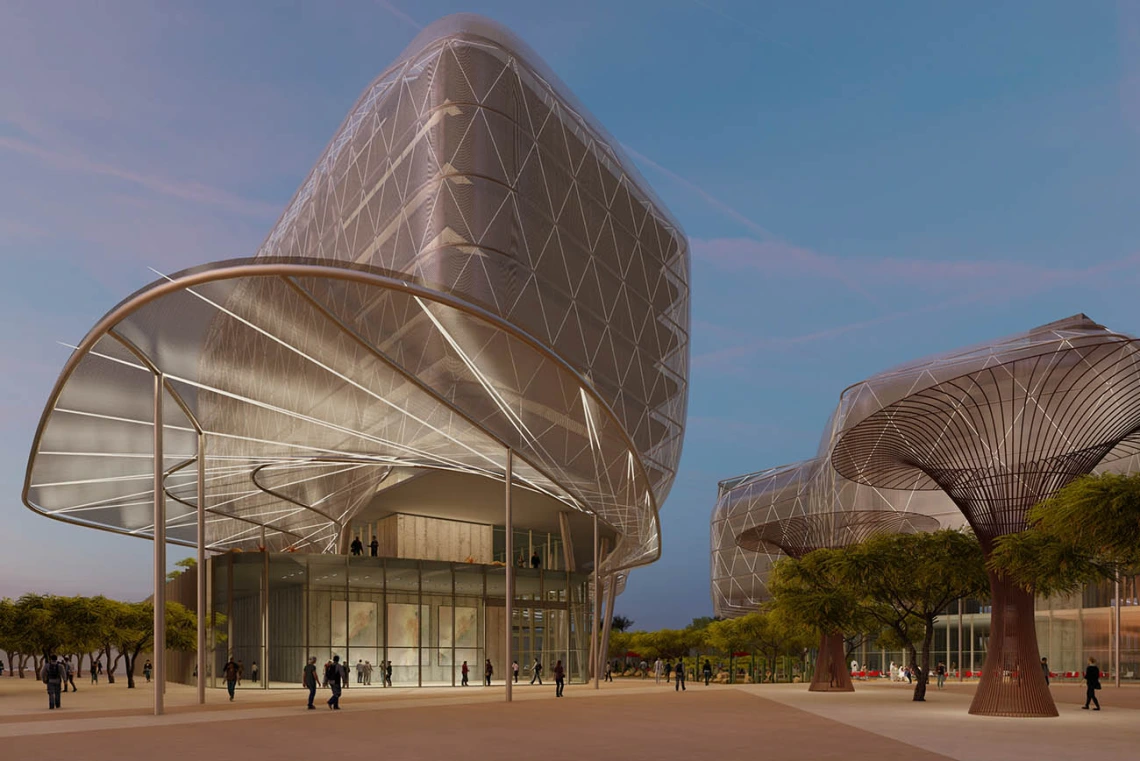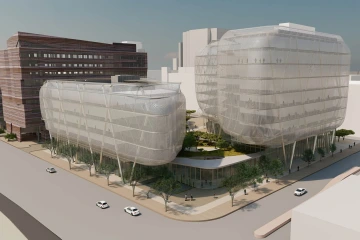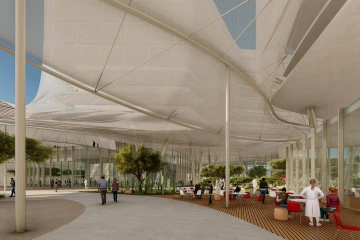Phoenix to be Site of New UArizona Health Sciences Center Targeting Immunotherapies
The Center for Advanced Molecular and Immunological Therapies will provide staff, facilities, support and services to advance precision medicine.

The Phoenix Bioscience Core will house the new Center for Advanced Molecular and Immunological Therapies, with space for academic and research activities, as well as collaboration spaces to serve academic, research and community needs.
Phoenix will soon be the home of the Center for Advanced Molecular and Immunological Therapies, a new University of Arizona Health Sciences center focused on developing biological therapies that stimulate or suppress the immune system to fight disease.

A two-story lobby podium uniting two research buildings will create a new entry to the campus with access to a clinical research suite.
“Our expertise in basic science, translational medicine and investigator-initiated clinical trials will allow the University of Arizona Health Sciences to lead the nation in advanced immunotherapies research,” said Michael D. Dake, MD, University of Arizona Health Sciences senior vice president. “We believe the Phoenix Bioscience Core is the perfect location to allow us to bring together world-class faculty, clinical researchers and internationally recognized thought leaders to catalyze the next generation of precision health care treatments.”
CAMI will serve as the anchor for an innovation district that aims to differentiate Phoenix from other emerging life sciences hubs, establishing the Phoenix Bioscience Core as a center of cell and gene therapy research, startup activity and corporate engagement.

Ample shade is provided with the building’s canopies extending over exterior courtyard seating areas and walkways.
Other examples of potential research include identifying biomarkers for response to immunotherapy that may help determine the precise drugs to fight specific cancers in individual patients, understanding individual immune responses to autoimmune diseases such as lupus, rheumatoid arthritis or Crohn’s disease, and creating ways to analyze immune health at the cellular level to identify how individuals might respond to a disease and to predict their health outcomes.
The research will take place in connected buildings that are being designed to include laboratories to support translational research, clinical research space and startup incubator space to create a synergistic environment for commercialization opportunities. Student education will be prioritized in learning spaces dedicated to academic programs that will allow CAMI faculty and researchers to mentor and train the next generation of scientists.
Using New Economy Initiative funding provided to the University of Arizona and allocated to UArizona Health Sciences, CAMI is being developed under the guidance of a 17-member advisory council of leaders from academic research, biomedical and health care industries, government organizations and corporations across the state. The center’s location in Phoenix is expected to facilitate strong connections with partners such as Arizona State University, Northern Arizona University, the Mayo Clinic and the Translational Genomics Research Institute, while boosting the local economy in the process.
Contact
Margarita Bauzá
313-520-2109
mbauza@arizona.edu

